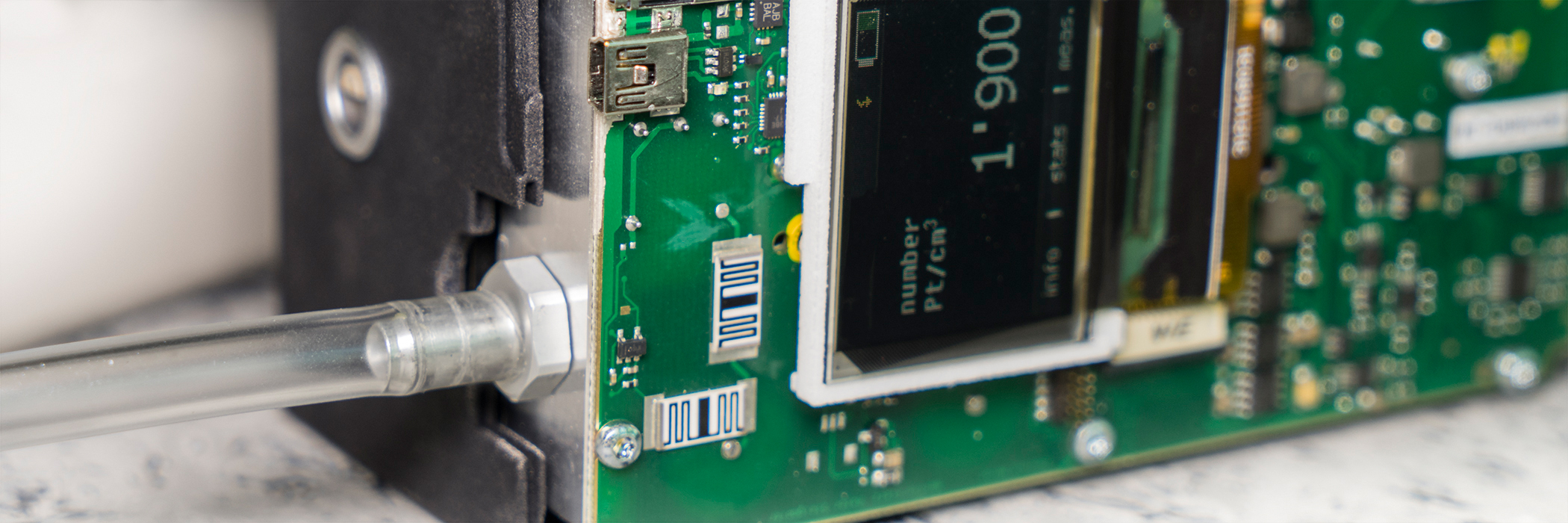1992 MICROSWISS Centre North-South
Prof. Reto Klein founded the "MICROSWISS Centre North-South" in 1992 as part of a federal programme "MICROSWISS". The task was to promote the use of microelectronics in Swiss industry. The engineering schools of both Basel in Muttenz and Ticino in Manno belonged to the centre at the HTL (Höhere Technische Lehranstalt) Brugg-Windisch as "associated schools".
1995 Aargau Microswiss Center
Peter Cairoli took over the management of the MICROSWISS Centre in 1995. In particular, he expanded the project activities with industry.
1999 Center for Microelectronics Aargau (zma)
The center underwent major changes in several respects: The HTL Brugg-Windisch became the University of Applied Sciences Aargau with a new, extended performance mandate. Prof. Karl Schenk took over the management of the center. The MICROSWISS Center gave itself a new strategy, a new face and a new name: Center for Microelectronics Aargau (zma). In summer of 1999, zma networked with other similar departments at Swiss universities of applied sciences to form the Microswiss Network and took over its management.
2000 Institute for Signals and Sensors (ISS)
The Institute for Signals and Sensors (ISS) was founded in 2000 by Prof. Dr. Heinz Burtscher as the first institute of the University of Applied Sciences Aargau. The activities of the ISS covered the following areas, whereby the focus from the beginning was on particle measurement technology:
- Cryptography: in particular analysis of cryptographic security.
- Particle measurement technology: Within the scope of particle measurement technology, topics in the field of aerosol particles are dealt with, with the focus on methods for measuring particle emissions from combustion processes (e.g. diesel soot). A well-equipped particle laboratory is available for this work.
- Sensor technology: Development of customer-specific sensors, but above all of complete measuring systems, i.e. sensors, associated signal processing and integration into an overall system.
- Signal processing: Time series analysis of non-linear signals (seismic, medical, biological, ...) and implementation of corresponding algorithms, e.g. in signal processors.
2006 Institute for Aerosol and Sensor Technology (IAST)
During the merger of the Universities of Applied Sciences of Aargau, Basel and Solothurn in 2006, the institutes were regrouped and the IAST was created with the areas of particle technology, sensor technology and cryptography. Signal processing was affiliated to the Institute 'Signal and Power Processing'. One year later, this institute was dissolved and the electrical power engineering came to IAST. During the whole time particle technology remained the largest field, which is also internationally well networked and known.
2006 Institute of Microelectronics (IME)
On 1 January 2006, the Universities of Applied Sciences Aargau, Basel and Solothurn merged to form the University of Applied Sciences Northwestern Switzerland FHNW. The zma was transferred to the new Institute of Microelectronics at the University of Applied Sciences FHNW.
2018 Institute for Sensor Technology and Electronics
On 1 July 2018, the particle measuring group of the Institute of Aerosol and Sensor Technology and the former Institute of Microelectronics merged into the new Institute of Sensor Technology and Electronics under the leadership of Prof. Dr. Gerd Simons.
